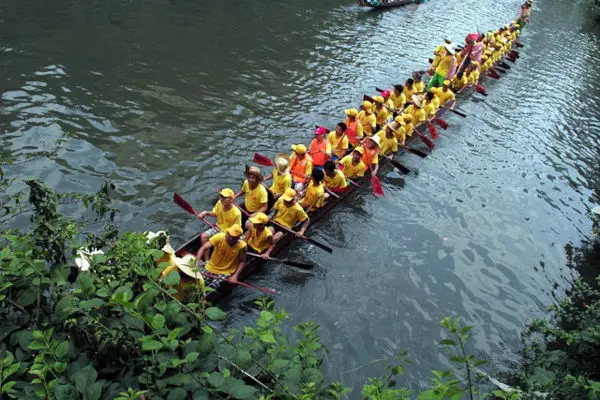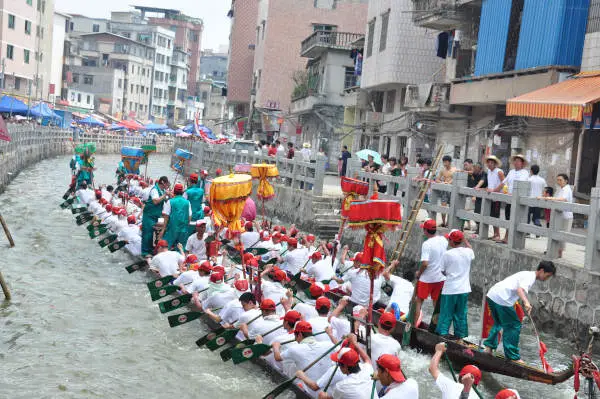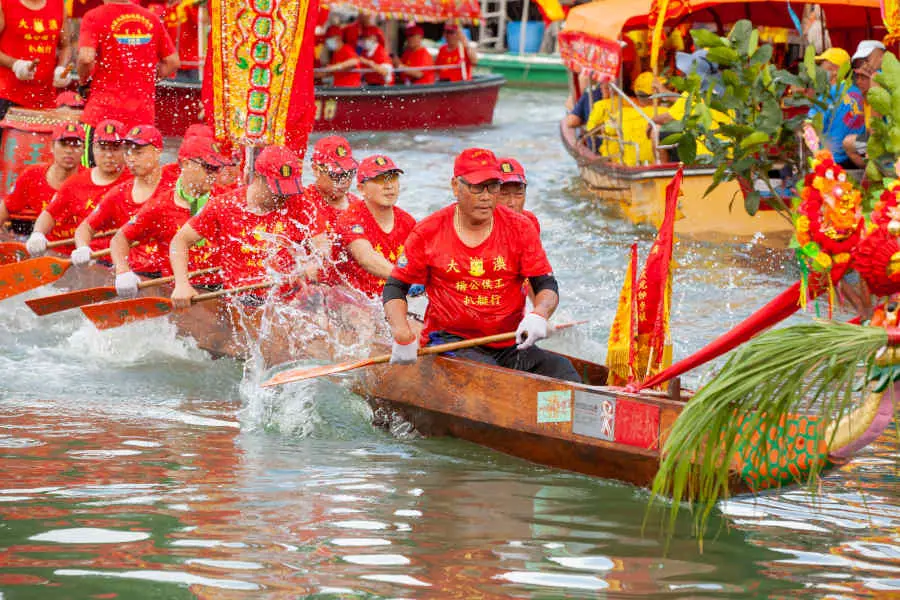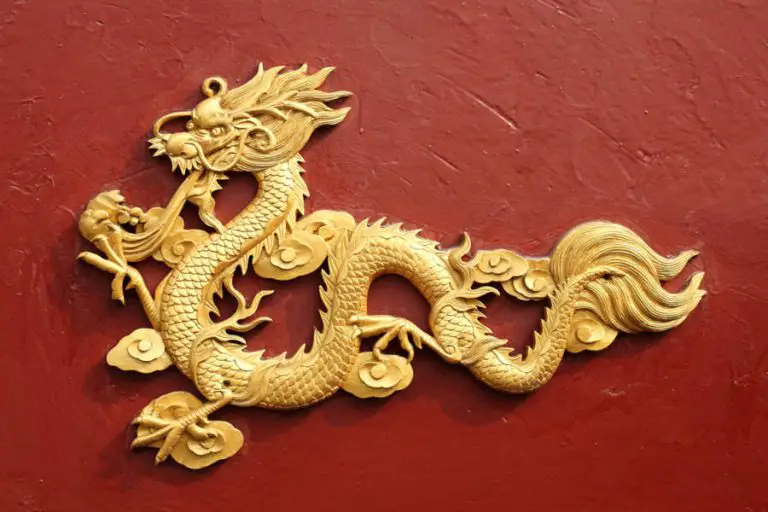The Dragon Boat Festival is one of the most popular festivals in Chinese culture and in China, it is considered as important as other big Chinese festivals (Spring Festival/Chinese New Year, Lantern Festival, and Ching Ming Festival, among others).
Just as with other festivals in Chinese culture, the Dragon Boat Festival is celebrated based on the Chinese Lunar Calendar rather than our standard Gregorian Calendar. To be more exact, the Dragon Boat Festival is celebrated every 5th day of the 5th month, and so this Festival is also often called the Double Fifth Festival.
Why, then, is the festival named “Dragon Boat”? We’ll learn further down this article.
Every cultural festival has its history, and so let us begin by discussing the origin and history behind the Dragon Boat Festival.
Dragon Boat Festival: Origins
The history behind the Dragon Boat Festival is one of the longest among other Chinese cultures and can be traced back to ancient times.
While there are many different theories of the actual origin of the Dragon Boat Festival, there are two most widely known theories:
Commemorating Qu Yuan
Qu Yuan lived during the Warring States period (475-221 BCE) and is someone of nobility.
Not only he is a noble he is also one of the Emperor’s advisors, a very respected position within the Kingdom of Chu. He is also a great poet and artist, with his poem called “Li Sao” (translated to “Encountering Sorrow” widely regarded as one of the best Chinese works of literature throughout history.
Qu Yuan is also a man of great visions, especially regarding his political aspirations. He gave birth to a lot of reformative ideas, which contributed to the developments of the Kingdom of Chu.
Qu Yuan also proposed the idea of building an alliance between the Kingdom of Chu and the neighboring Kingdom of Qi. According to his idea, the alliance is going to be important in defending both kingdoms from the impending invasion from the Kingdom of Qin, which will threaten the existence of the Kingdom of Chu.
However, many nobles thought ill of Qu Yuan’s advice. Many of these nobles will be negatively affected in terms of finances and power if the proposed alliance transpires, so they downright rejected the proposal. There are also nobles that downplayed the imminent attack of the Qin Kingdom, so they simply thought of Qu Yuan as being too paranoid.
Qu Yuan initially didn’t give up and keep proposing the plan to the Emperor, but the nobles then slandered Qu Yuan, which resulted in Qu Yuan’s exile.
Long story short, Qu Yuan was eventually proven right. In 278 BCE, the capital of Chu was attacked by the Kingdom of Qin, and the Kingdom of Chu fell to the Kingdom of Qin’s conquest. Qu Yuan, in his exile, learned of the destruction of his beloved kingdom and decided to kill himself due to his disappointment.
It was said that during the 5th day of the 5th month, Qu Yuan wrote his last poem before drowning himself in the Miluo River.
The people learned about Qu Yuan’s death and were severely saddened by the incident. Many of those who lived around Miluo River sailed their boats in an attempt to find Qu Yuan’s body, but despite the effort, Qu Yuan’s corpse was not found. During this search, the people cooked a dish made of glutinous rice that is wrapped with leaves (now known as the Zongzi) and threw this dish into the river so that the fishes will eat the Zongzi rather than Qu Yuan’s body.
This is how the tradition of sailing boats especially on the Miluo River and eating Zongzi during the Dragon Boat Festival originated.

In Memory of Wu Zixu
Another origin theory for the Dragon Boat Festival is about a man named Wu Zixu.
Similar to Qu Yuan, Wu Zixu also lived in the Kingdom of Chu during the Warring States era. His father was a teacher for the royal family, but one day the Emperor threw Wu Zixu’s father in prison, and also gave an order to kill Wu Zixu and his brother Wu Shang.
After they’ve heard about this, Wu Zixu and his brother attempted to escape from the Kingdom of Chu, but Wu Shang was captured and executed. Wu Zixu successfully escaped to the small kingdom of Wu, and he built his career in the Wu Kingdom while also planning his revenge on the Kingdom of Chu.
Long story short, Wu Zixu successfully helped the Wu Emperor conquer the Chu Kingdom and thus, avenged his family, and Wu Zixu continued his life in the Kingdom of Wu.
However, after the Wu Emperor passed away, the successor and Wu Zixu didn’t meet eye to eye. Many of the nobles who didn’t like Wu Zixu then framed Wu Zixu for a crime, so the Emperor ordered Wu Zixu to kill himself.
The forced suicide happened on the 5th day of the 5th month, and the legend further said that Wu Zixu’s last will is to remove his eyes after his death and hang them on the city gate so he could watch the fall of the Kingdom of Wu.
The Emperor was angered by Wu Zixu’s request and instead ordered the soldiers to throw Wu Zixu’s corpse into the river. The people, who loved Wu Zixu, then organized a boat racing contest to commemorate Wu Zixu. According to this origin theory, the contest was held regularly year after year and then became the Dragon Boat Festival.
Activities and Traditions During The Dragon Boat Festival
Many of the traditions and activities performed during the Dragon Boat Festival were based on the origin theories and the history behind the festival, as we’ve learned above.
Below are some of the most important activities commonly performed during the Dragon Boat Festival.

Dragon Boat Racing
The namesake tradition is the most important, must-have activity every time the Dragon Boat Festival is celebrated.
A “Dragon boat” is longer than the typical traditional Chinese boat, and while the actual size and length may vary, typically the length of a Dragon boat is between 20 and 35 meters, requiring 30 to 60 people to paddle a single boat.
A unique thing about these Dragon boats is the drummer, who sits at the front of the boat, thumping the drum to keep the paddles in rhythm by matching his/her drum beats with the strokes of the front two paddles. We can say that the drummer provides the pulse or heartbeat to the Dragon boat itself, allowing the paddlers to paddle together in harmony. The faster the drum beat, the faster they will paddle, and the faster the boat will move.
Besides the long shape, the Dragon boats are typically made of wood and are generally rigged with decorative Chinese dragon heads and tails with various designs, hence the name “Dragon boat”.
Eating Zongzi
Another important tradition celebrated during the Dragon Boat Festival is cooking and eating Zongzi, which is considered as the essence of the Festival itself.
As we’ve learned above, the Zongzi was the glutinous rice dish thrown into the river in the story of Qu Yuan. Nowadays, however, we eat the Zongzi during the Festival rather than throwing them into the river or sea.
The Zongzi is made of glutinous rice, filled with fillings like meat, various types of nuts, salted egg, mushroom, and others. Most Zongzi dishes are shaped as a triangle or square, although there’s no restriction regarding shape. Once the glutinous rice is properly shaped, it will then be wrapped in leaves (typically bamboo or reed leaves), tied, and then steamed.
There are various variations of Zongzhi dishes in different areas of China, and while most Zongzi dishes are savory in nature, there are also sweet versions.
Hanging Calamus and Chinese Mugwort
Hanging Calamus and Chinese Mugwort plants are also simple but important activities often held during the Dragon Boat Festival.
Many people hang these plants or place pots of these plants in front of their doors at the start of the Dragon Boat Festival. This practice is believed to ward off bad luck and diseases, and these plants are also natural insect repellents.
Dragon Boat Festival Variations Outside China
The Dragon Boat Festival is not only celebrated in China, but also in other Eastern countries despite slight variations in each country.
Here are some notable examples:
Japan: Children’s Day
As the name suggests, this festival is designated especially for children, and is also celebrated during the 5th day of the 5th Lunar month.
When celebrating this festival, families must raise the koinobori, carp-shaped windsock made of paper: the black carp for the father, pink (or sometimes red) for the mother, and one carp with different colors for each child. Typically the eldest son is given the red carp, and blue and other colors for the younger children (or older sisters).
A variation of Zongzi called Kashiwa mochi (sweet, sticky ice cakes filled with red bean paste) is also eaten during this day.
Korea: Gangneung Danoje Festival
The Korean variation of the Dragon Boat Festival is mainly celebrated in the city of Gangneung, and the main activity of this Festival is the shamanistic ritual on the Daegwallyeong Ridge, paying tribute to the mountain deity.
In modern Korea, the Nanjang market is opened during the festival as the major element of the festival, which is now Korea’s largest outdoor marketplace selling local products and handicrafts. Various games, performances, and contests also take place in the Nanjang market throughout the Festival.
Check out our “Free Culture Library“. We have compiled some great free resources, about Chinese culture, for your research.
Stay in Touch
 Join our newsletter by using the forms on this website or click here!
Join our newsletter by using the forms on this website or click here! Follow us on Google News
Follow us on Google News Follow us on Facebook
Follow us on Facebook
Featured Image by Kelvin Ma from Wikimedia Commons (CC BY-SA 4.0)






